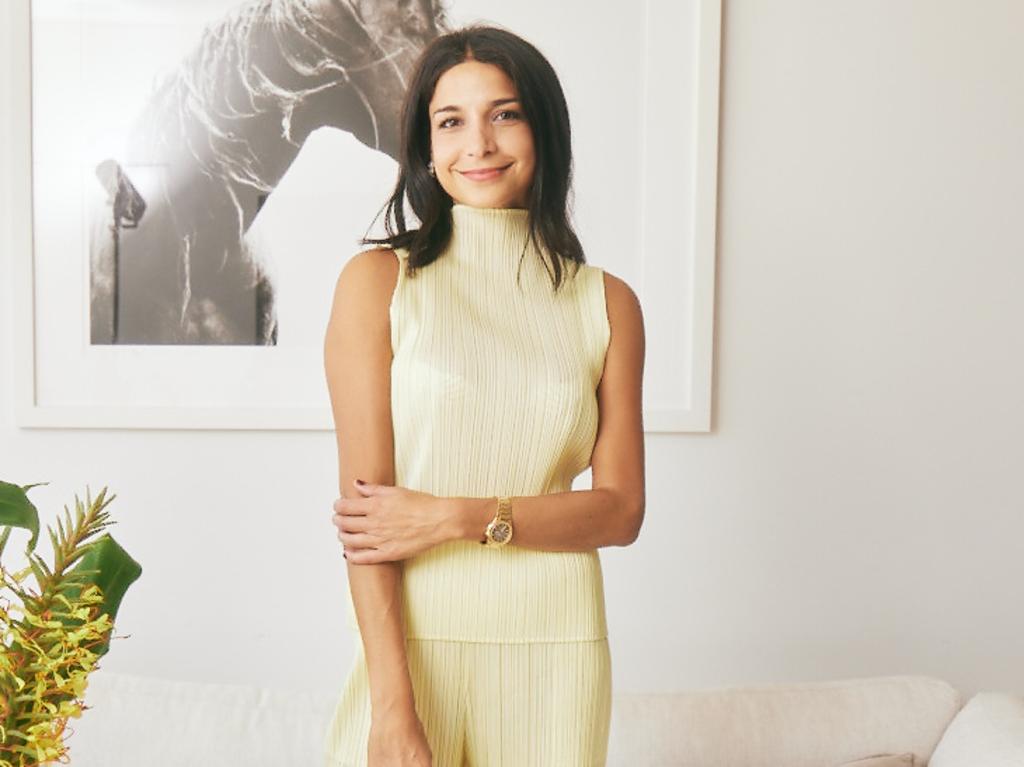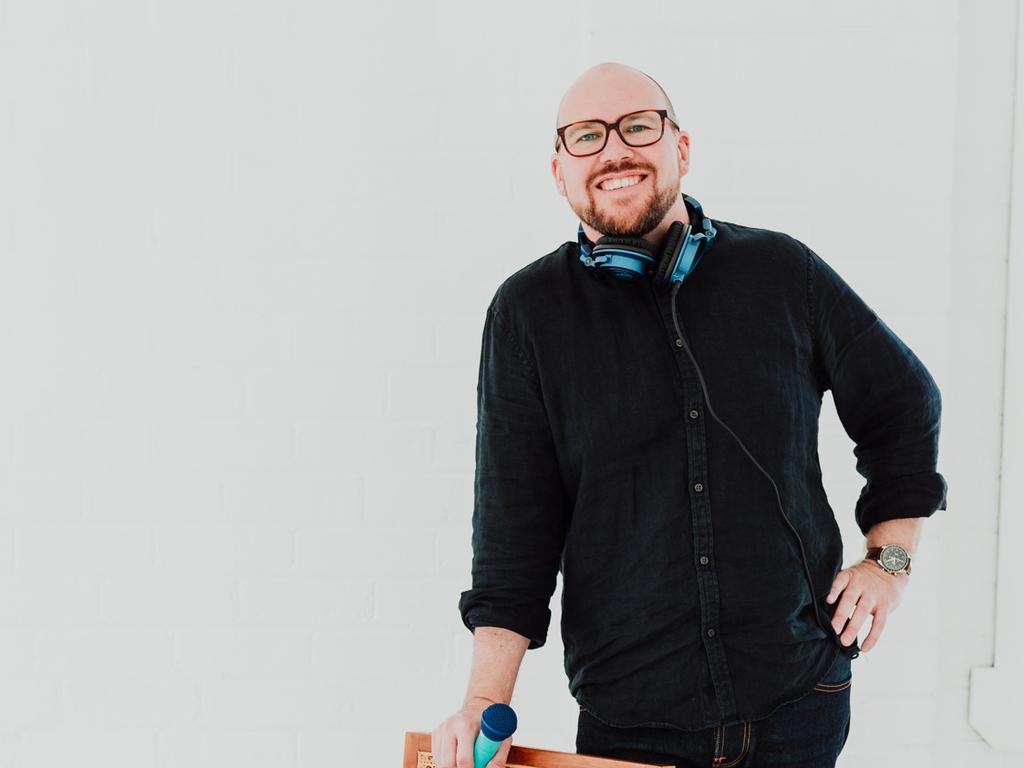The hidden toll of being an influencer
While Aussies might scoff at the free gifts and sponsored holidays, these influencers reveal the little-known truths behind their glamorous occupation.
When Matt Hey was a child, all he wanted to do was entertain people, “whatever way that was”.
Since starting his YouTube channel as a content creator and becoming a social media influencer under the name Alrighthey, entertaining people has become his life.
From his videos and TV appearances, to his podcast, Trash Alley, and live comedy shows, Hey spends his days engaging an audience.
But being an influencer isn’t all flashy free outfits, sponsored holidays and dreams come true.

US beauty influencer Mikayla Nogueira recently had a 2021 video resurface, referred to as the ‘5:19’ video. In the now-deleted clip, the 24-year-old described what her average day looks like as an influencer, from waking up at 6am to film video content, to being in meetings until 5pm.
In what appears to be an exasperated bite back at a hateful comment left on her page, Nogueira unleashed this now infamous statement.
“I literally just finished work and it’s 5:19,” she said. “Try being an influencer for a day. Try it. Because the people who say it’s easy are so far out of their minds, try it for a day … You do not want to have this job – I’m just saying.”
Upon the video being resurfaced, the Massachusetts-based makeup artist apologised for the video that she “absolutely should not have made”.
While acknowledging her privilege, Nogueira went on to explain a level of the emotional toll that her job has had on her.
“My mental health has been deteriorating for several months now,” she said. “And I just kept pushing myself, and pushing and pushing and pushing – because that’s what I do.”
While even Nogueira emphasised that her job is not nearly as hard as that of a “neurosurgeon or a teacher,” the situation does raise the question, how hard is it to be an influencer?
Influencers reveal workload behind the scenes
Rey Vakili, Managing Director Australia at LTK, the world’s largest influencer marketing platform, says being a content creator can be “as hard or easy as you want it to be”.
“The world of social media never sleeps and so if you are producing a lot of content and taking your work seriously it can be around the clock,” she said.

Despite the widely held perception that an influencer is just someone who tossed some edited makeup tutorials on TikTok and was met with random virality, Vakili explains the strategy and hard work required for the job.
An influencer today needs an understanding of everything from photography, videography and editing to copywriting, and creative direction in order to engage best with an online audience. Not to mention “more subtle skills like data analysis … contracts, negotiations and networking”.
The 2022 LTK Holiday Shopping Report showed the commercial weight that influencers hold, with 6.6 million Australians now more than ever influenced by content creators when it comes to buying non-essential items. Furthermore, 9 million Australians now rarely shop in-store for non-essential items, “due to online being so much easier, with the guides provided by creator commerce,” says Vakili.
By providing engaging and interesting content, influencers are having a billion dollar impact, with over $3b in annual retail sales being driven through the LTK Creator App globally alone.
“We’ve seen over the last few years that creators are not just at the bottom of the funnel, they drive awareness, support in changing brand sentiment, and increase sales” she says.
But to achieve this kind of influence, financial influencer Glen James, founder of the My Millennial Money’ podcast says the workload involves “creating content almost daily”.

“You end up just being a small business person, because as much as you’re running the content, filming and recording stuff, you’re also managing brands that want to work with you, your speaking events, and, potentially, other team members that helped you do stuff,” he says.
“I probably do, sometimes, 10 hour days. I do some work every single day, seven days a week.”
Matt Hey says “social media or being an influencer is a 24/7 job, because it kind of just never stops. You always feel like you’re updating your audience on what you’re doing, or you’ve always got something to go to … I definitely work more than eight hours per day.”
Influencers acknowledge their privilege
Hey says he empathised with Nogueira during the controversy.
“The job is definitely hard. All jobs are hard. And I think that the difference is that there’s an intense amount of privilege that comes with being an influencer.”
James defines this privilege as the time and money that comes from being an influencer, allowing you to determine your own work hours and set your own prices and income.
“If you control your money and your time, and you have lots of both, you’re ahead of most of the worldwide population.”
The hidden toll of being an influencer
But despite the immense privilege that comes with the job, Hey places weight on the fact that no time or money is worth the mental health struggles that many influencers face.
“There’s a lot of online trolls and bullying. I mean, look what happened with Mikayla [Nogueira], one day, she was like, the most loved person on TikTok, the next day, the entire world was against her,” he said.
“She was just getting buckets and buckets of hate from all over the world, millions of people piling on. And then a few days later, they all love her again.”
“It’s not like you can say, oh, I got a free PR package so my mental health is much better now.”

And when audiences are fed a constant stream of glittering PR experiences, free gifts and holidays to Bali, the average person might not think to question the mental health of the filtered creator behind the screen.
The Sydney-based comedian sums it up. “Sometimes I’ve had that thought where I’m just like, I just want to delete all social media and go and live off grid, but I would never express those feelings to my audience. Because at the end of the day, (followers) see this amazing life that we live and think that that’s the end of it.
“I think that Mikayla had one of those moments where she just spoke to the wrong people about her issues, because they just didn’t get it.”
Melbourne food and lifestyle influencer, who goes by Mia Goreng, agrees that “with any job, mental health is a very important factor, and there might be other stressors in (Nogueira’s) life that we don’t know about … people should be able to vent but whether or not you have a following, I don’t think you should do it publicly.”

Goreng rose to popularity several years after a difficult journey during the global financial crisis. She had graduated from university, and couldn’t find a job. Due to a combination of factors including complications with her family, the now-influencer found herself homeless, with very little in her bank account.
“I’m always grateful for how far I’ve come and what I have accomplished.”
Identifying the stigma toward influencers
Goreng says she now only works the equivalent of three to four days a week, and is far better off, emotionally and financially, than in previous demanding jobs.
However, she acknowledges the strain that her job can have on friendships, as her ‘influencer’ title can attract both ‘leeches’- people who simply want to spend time with her to earn a spot on her feed, and plain judgment of her occupation. Thanks to a growing societal craving for authenticity, along with a hint of deep-rooted Aussie tall poppy syndrome, there is often a collective distaste for anyone earning their way as an ‘influencer’.
But despite the hidden tolls and backlash sometimes tied to the job, both Hey, James, and Goreng agree they would choose the job again in an instant.
Hey is adamant. “Absolutely 100% for a multitude of reasons … This is all I’ve ever really wanted to do. And so the fact that I’m living my dream literally is so iconic. So I would definitely tell my younger self to pursue this.”




